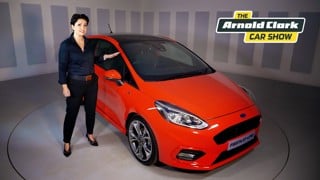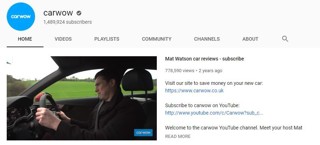Car manufacturers’ YouTube video content gained greater traction than their own websites for the first time in 2018, according to a new study by digital marketing specialist Sophus3.
Ahead of its annual digital automotive summit at the Henry Wellcome Auditorium, on London’s Euston Road today (February 26), Sophus3 revealed some of the findings from its year-long study of the automotive sector’s digital marketing successes and shortcomings.
Among its findings, it emerged that traffic to car brand websites in the ‘Big 5’ EU markets held steady at 1.27 billion visits last year, but 50% of visitors now quit, and are lost, after looking at just one page.
Indicating a trend towards high-quality video content, however, car brand YouTube channel visits exceeded visits to their websites for the first time with 1.34 billion views – up 40% on 2017.
Scott Gairns, Sophus3’s managing director, will present a full picture of the findings at the today’s event. He said: “Despite a disappointing car market for sales in 2018, we continue to see strong levels of online interaction and clear patterns of behaviour that car brands should be reacting and adapting to.
“Yes, they will continue to be challenged by Brexit, weak markets or increased legislation against diesel, but there are clear opportunities to engage car buyers better and turn interest into leads and sales, whether that is in exploiting the clear interest in SUVs and EVs or improving their digital experience in line with that which YouTube, Facebook or Amazon offers.
“Car buyers are still hugely interested in new cars, but if they find it difficult, confusing or frustrating to find what they want online they will go elsewhere.”
Sophus3’s study of online car buyer activity found that 55% of all traffic to digital showrooms now comes outside of working hours, with more visits take place at 10pm than 10am.
SUVs and EVs emerged as the only segments to see growth in online interest during 2018, both registering significantly higher percentages than their retail market share.
A total of 43% of all car-buyer online visits were on SUV pages, up from 34% in 2017, a strong result compared to SUV’s market share for sales in 2018 of 37%, it said.



















Login to comment
Comments
No comments have been made yet.